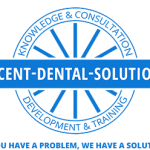If you run a dental practice, you are probably at least loosely aware of the importance of goal setting. If not, here is some food for thought. A recent 10-year study of Harvard MBAs found only 3% had written goals with a plan of action for achieving them. Another 13% had goals in mind, but never shared them with others or wrote them down. A stunning 84% had no specific goals at all. At the end of the 10 years, the 13% with unwritten goals made twice as much money as those with no goals. And the 3% who had written goals earned 10 times as much as the rest of the group combined!
Yet simply setting goals is not enough. That 3% also had a plan to achieve their goals. To develop and execute a plan of action, though, it is important to set SMART goals. Here’s what that means:
Specific: General goals, like “grow my practice” are a terrific way to start the goal setting process, but are not enough on their own. The goal must be specific in both scope and area. To set specific goals, consider the five Ws—who, what, where, which, and why.
Measurable: A goal must be able to be measured or quantified in some way. Try asking “how” questions—how many, how much, how will I know when I’ve achieved the goal?
Achievable: To be achievable, a goal must be within your control and must be realistic given your available resources. For this step, ask the practical questions—can I afford the cost in both time and money, do I have the necessary manpower, are there alternative ways to reach this goal that I haven’t yet considered?
Relevant: A relevant goal is both personally important to you and in alignment with your other relevant goals. Ask questions such as: does this feel right, is it the appropriate time, will it take too many resources away from other goals, does this flow well with other efforts I am making?
Time-based: Deadlines are essential to keeping you moving forward, but they must be realistic. Each goal needs a final deadline for completion, broken down into smaller components. A popular way to go about this is to work backwards. First, what is my final deadline? Then, to reach that deadline, what needs to be done by six months from now, six weeks from now, one week from now, and today?
Some experts expand SMART goals into SMARTER goals, acknowledging the importance of Evaluation and Review. The key takeaway from that is that you must acknowledge the reality that life gets in the way. If you don’t make your six-week deadline on a particular goal, don’t give up! Evaluate the situation to learn why you didn’t make it and review your timeline to make necessary shifts.
Likewise, a goal that seemed critical six months ago may no longer seem relevant. Evaluate the goal to see if you should table it, and review your overall goals to determine whether it is a necessary component or something you can simply let go.
Your goal list, like your business plan, should be a living document that adapts and evolves as needed. Having a written list of goals with deadlines is vital for success, but at no time should you become a slave to an outdated goal sheet. Take the time to sit down and set SMART goals, and then revisit them at least biannually to ensure that you are making adequate progress and to refresh your list as appropriate.
Ascent Dental Solutions is a full-service agency dedicated to helping dentists build their practices and map out their careers. It is the brainchild of Dr. Kevin Coughlin, who earned his doctorate at Tufts University School of Dental Medicine and currently serves as a faculty member there. While Dr. Coughlin continues to practice dentistry as the principal owner of the 14-location Baystate Dental PC, he has a strong passion for helping fellow dentists maximize their success. If you are interested in learning how to take your dental practice to the next level, please contact Ascent Dental Solutions today at 413-224-2659 to learn how Dr. Coughlin can help.

